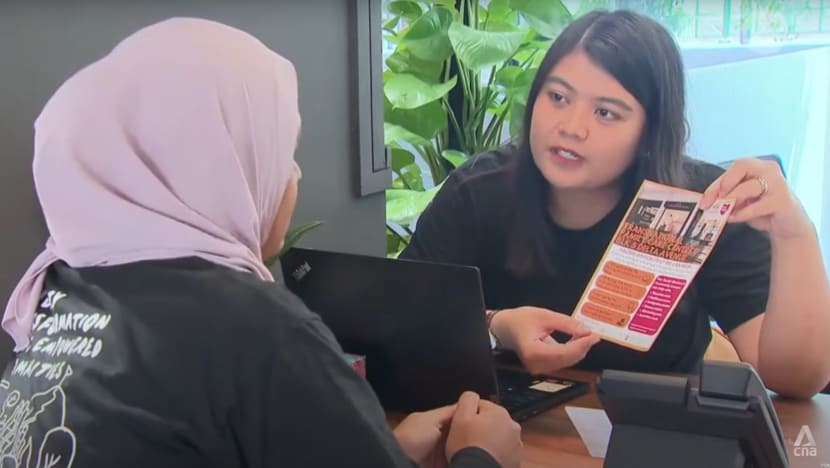Singapore sets up first dedicated centre for transnational families
The new centre by Pro Bono SG and South Central Community Family Service Centre is located within the family service centre’s premises in Bukit Merah.

Singapore has set up its first social service centre dedicated to the needs of transnational families, or those where not every member is a citizen or permanent resident.

This audio is generated by an AI tool.
SINGAPORE: Singapore has set up its first social service centre dedicated to the needs of transnational families, or those where not every member is a citizen or permanent resident.
The Transnational Family Care Centre was launched on Monday (Jul 15) and will bring together social, financial and legal help, particularly for those who are lower-income and do not have access to aid.
The new centre, which is run by Pro Bono SG and the South Central Community Family Service Centre, is located within the family service centre’s premises on Delta Avenue in Bukit Merah.
Pro Bono SG will deploy full-time community lawyers at the centre, while The Inclusive Fund under the South Central Community Family Service Centre will help in areas such as housing, education and healthcare.
Although the two charities have already been providing support to transnational families, they will offer their services under the same umbrella for the first time.
FINANCIAL HELP
With one spouse not a Singaporean and thus ineligible for government subsidies, some families face high costs for basic services such as healthcare, said Ms Kanak Muchhal, manager at The Inclusive Fund.
Expenses can rack up if there are children who are not citizens as well, she said.
She noted that the price of education in the local school system is unaffordable for such children, even if they are permanent residents.
“We didn't want a case where children wouldn't be accessing education and then the gap between them (and) their peers would be that much wider,” added Ms Muchhal.
Ms Sandhya Aswani, a committee member of the fund, said it works almost like a last resort. By the time families approach her organisation, families are unable to pay school fees which typically make up one-third to half of their monthly incomes.
“We've seen some families rack up tens of thousands of dollars in debt which can be a huge burden for the families to carry,” she told CNA’s Singapore Tonight.
She added that they also do not go for critical treatment needed for healthcare issues as they cannot afford the bills.
The Inclusive Fund has supported 123 people in such families, of which more than four in 10 were foreigners, over the last three years.
LEGAL HELP
Mr Gregory Vijayendran, chairman of Pro Bono SG, said that transnational families are particularly vulnerable as they do not know where to go for support.
“Awareness is a critical, big piece. Related to that is I think the ability to find the right wisdom at the right time,” added the former Law Society of Singapore president.
He said that the socio-legal partnership between the two charities is best placed to address the problems of transnational families.
His charity provides legal advice at the centre to supplement what social workers do. This includes navigating immigration challenges and supporting those going through divorce.
On the type of issues his organisation encounters, Mr Vijayendran said: “Family is really top of the list and typically, they involve situations where the marriage has broken down.”
He added that questions on getting legal protection from violence also arise.
Minister in the Prime Minister’s Office Indranee Rajah, who oversees the National Population and Talent Division, said there is a growing number of such families in Singapore.
One-third of citizen marriages in recent years involved a non-citizen spouse, she noted.
Speaking at the launch of the centre on Monday, Ms Indranee said the government will continue working with community partners to help transnational households build a strong foundation.
“Transnational families are not a new feature to our society, but what's new is the numbers. They are growing,” she said.
“They could be relatives, our friends, our neighbours, or even in our own families, and … all of us play a role in welcoming these new members of Singapore families and supporting them and helping them to integrate into our society."












.jpg?itok=h-d3G20X)





